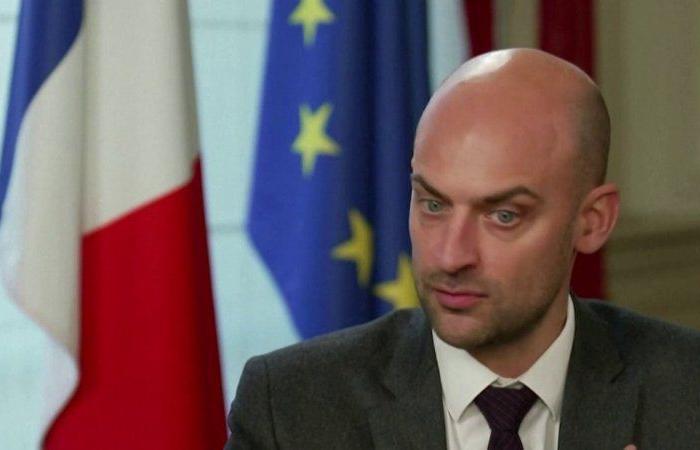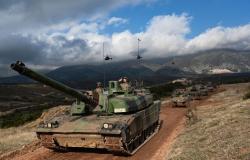As Donald Trump's inauguration approaches in January, Russia's war on Ukraine has entered a new phase of escalation. While the fighting on the ground is becoming more and more intense, the massive arrival of North Korean soldiers in Russia has been confirmed by kyiv and its Western allies, including the United States. In response, Washington authorized Ukrainian forces to strike military targets on Russian territory using American long-range missiles, an authorization immediately put into practice last week.
Moscow responded by firing a latest generation medium-range ballistic missile (IRBM), called Orechnik, on the Ukrainian city of Dnipro. In a solemn address on television, President Vladimir Putin, who has modified his nuclear doctrine to lower the threshold for using this weapon, affirmed that “the conflict in Ukraine has now taken on global characteristics” and warned that it did not rule out striking countries whose weapons are used by Ukraine in Russia. He later ordered the mass production and further combat testing of the new Orechnik hypersonic ballistic missile, in a meeting with military officials broadcast on television. Moscow also announced on Tuesday that it would expel a British diplomat, accused of espionage.
For its part, the United States indicated this weekend that it expected the thousands of North Korean soldiers stationed in Russia to fight Ukrainian forces “soon”. Ukraine also announced on Tuesday that it had been the target of a record Russian attack overnight, with a number of 188 combat drones.
It is in this context of strong tensions that the NATO-Ukraine Council, a body created in 2023 to facilitate dialogue between kyiv and the Atlantic Alliance, meets today, at the request of kyiv. At the same time, according to the daily The Worlddiscussions on sending Western troops and private defense companies to Ukrainian soil, would have been reactivated between France and the United Kingdom in the perspective of a possible American disengagement from support for kyiv after taking office of Donald Trump, in the United States, January 20, 2025. “These exchanges would concern cooperation in defense matters, in particular with the aim of creating a hard core between allies in Europe, focused on Ukraine and European security in the sense wide” explains daily life.
A security issue that is of growing concern in Europe, particularly Germany. After the firing of the Russian medium-range ballistic missile, capable in theory of hitting a European city, the German authorities announced that they were in the process of listing bunkers and shelters where the population could find refuge in the event of an attack. The German Foreign Minister also expressed doubts on Monday about the causes of the crash of a cargo plane in Lithuania. “We have to seriously ask ourselves whether this was an accident or, like last week, again a hybrid incident,” Annalena Baerbock said on the sidelines of a G7 meeting in Fiuggi, Italy. The minister was referring to the recent suspicious ruptures of submarine telecommunications cables in the Baltic Sea, for which sabotage cannot be ruled out. Sweden, which is investigating the case, asked a suspected Chinese cargo ship to reach Swedish territorial waters in order to “cooperate to understand what happened.” On the front line against Russia, this Scandinavian country began sending five million brochures to its residents last week, urging them to prepare for a potential conflict, both mentally and logistically. Location of fallout shelters, choice of food, reliable sources of information, the 32-page document describes, using simple illustrations, the threats weighing on Sweden and gives advice such as building up food stocks food and water. The government of Finland, a neighboring country which shares a 1,340 kilometer border with Russia, also made a website available to its citizens on Monday with advice on how to prepare in the event of a crisis.
A fear of the extension of the war which seems to have played an important role in the results of the first round of the presidential election in Romania. The pro-Russian far-right candidate Călin Georgescu, opposed to aid to neighboring Ukraine and slayer of NATO, took everyone by surprise by coming first in the first round of voting this Sunday, with 22.94 % of votes cast, ahead of Elena Lasconi, 52, center-right mayor of a small town (19.17%).
So how did Călin Georgescu, avowedly pro-Putin, deceive polls which credited him with 8% of voting intentions in Romania? Should we fear an extension of the war? How is Europe preparing? Finally, what is the situation in Ukraine, and in particular in the Zaporizhia nuclear power plant? Our journalists were able to collect the testimony of a Ukrainian operator who worked in the power plant, which became a Russian military base.
The experts:
– ELSA VIDAL – Editor-in-chief of the Russian language editorial team – RFI
– GENERAL PATRICK DUTARTRE – General of the Air and Space Force, former fighter pilot
– ISABELLE LASSERRE – Diplomatic correspondent – Le Figaro, sspecialist in strategy and geopolitics
– ÉLISE VINCENT – Journalist responsible for defense issues – The World






